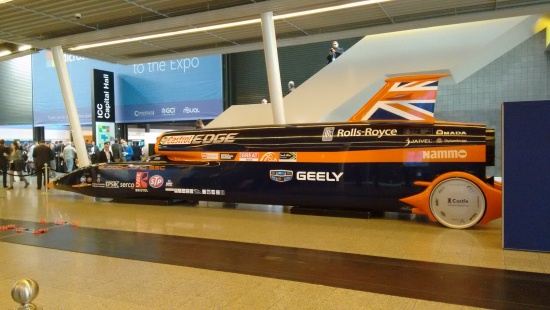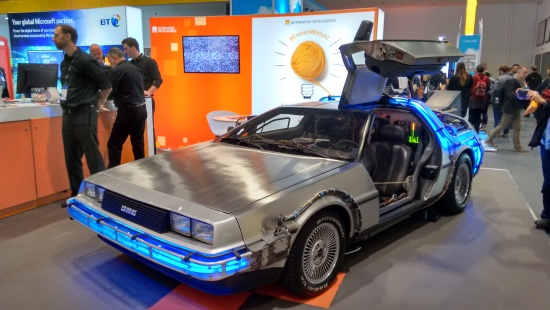Cohort 1 researcher Dimitris explores the future decoded...
28 November 2016
Our 3rd year researcher Dimitris attended the Microsoft’s Future Decoded 2016 (https://futuredecoded.microsoft.com) event, which took place at Excel in London, on November 1 and 2, 2016. The first day was focused on digital transformation of businesses and the benefits it can bring in for stakeholders and customers alike. A number of well-known speakers presented the steps from conception to the implementation of the digital business and approaches to smooth out this -sometimes steep- transitional period.
Keynote speakers such as Dr. Ian Levy, the Technical Director of the National Cyber Security Centre (NCSC) (https://www.ncsc.gov.uk) and Mike Bugembe who is currently the Chief Analytics Officer of JustGiving (https://www.justgiving.com) used a number of examples to demonstrate what are the gains from keeping up with the trends in the digital era, but also the potential dangers and pitfalls if misused. The day was concluded with an inspirational speech from Martine Wright, a 7/7 survivor discussing about how an instantaneous event can change entirely the way we think and perceive life and could motivate people to grasp opportunities.
The second day was much more technical, where distinguished experts, like Chris Messina, the inventor of hashtag and current Developer Experience Lead at Uber, introduced the technologies of the future, either it being the upcoming augmented reality (AR) revolution, the evolving intelligent messaging platform bots or the expanding blockchain technology. Microsoft has invested significantly in realising these ideas and bringing the tangible results to the public, as either commercial products or services through the cloud.
Although most of the demonstrated concepts have already been in the market for quite some time, we had the opportunity to take a glimpse from several world-leading researchers’ work of today, which will be the disruptive technologies of tomorrow. As an example, Dr. Abe Davis, a post-doctoral researcher from Stanford University demonstrated his work on “the visual microphone”, which will enable recovering sounds and noises from silent videos and could potentially have numerous groundbreaking applications.
In other side-talks over the two days, Microsoft evangelists and engineers from third-party companies presented the infrastructure, the algorithms and the tools they work on to provide customers with insightful data analytics, prediction models and increase productivity. Several case studies were presented, mainly from the healthcare and the business-to-business sector, to demonstrate the variety of applications that can potentially benefit. In parallel to the main and breakout sessions, more than 50 exhibitors demonstrated their solutions to facilitate the digital transition, offering IT collaboration toolkits, cloud integration services, intelligent IoT-oriented platforms, and virtualisation support. Highlights of the exhibition floor included a real-size replica of the Bloodhound SSC (http://www.bloodhoundssc.com) (photo 1), the British supersonic land vehicle aiming at breaking the world’s land speed record and a, also real-size, model of the legendary DeLorean (photo 2)! Dimitris was lucky enough to try out the new HTC Vive VR headset as well and watch a live demo of Hololens, Microsoft’s high-promissing AR kit..!

Photo 1. The Bloodhound SSC

Photo 2. The DeLorean!
With an attendance of 4000+ people each day and a selection of more than 200 sessions, Microsoft managed to successfully pull through one of the biggest events of this year on the erupting digital evolution and accurately identify the challenges and highlight the motives for a business to consider the big leap of faith. The total experience is definitely something we are looking forward to repeating next year, and is a must for researchers who seek to be ahead of the market.








